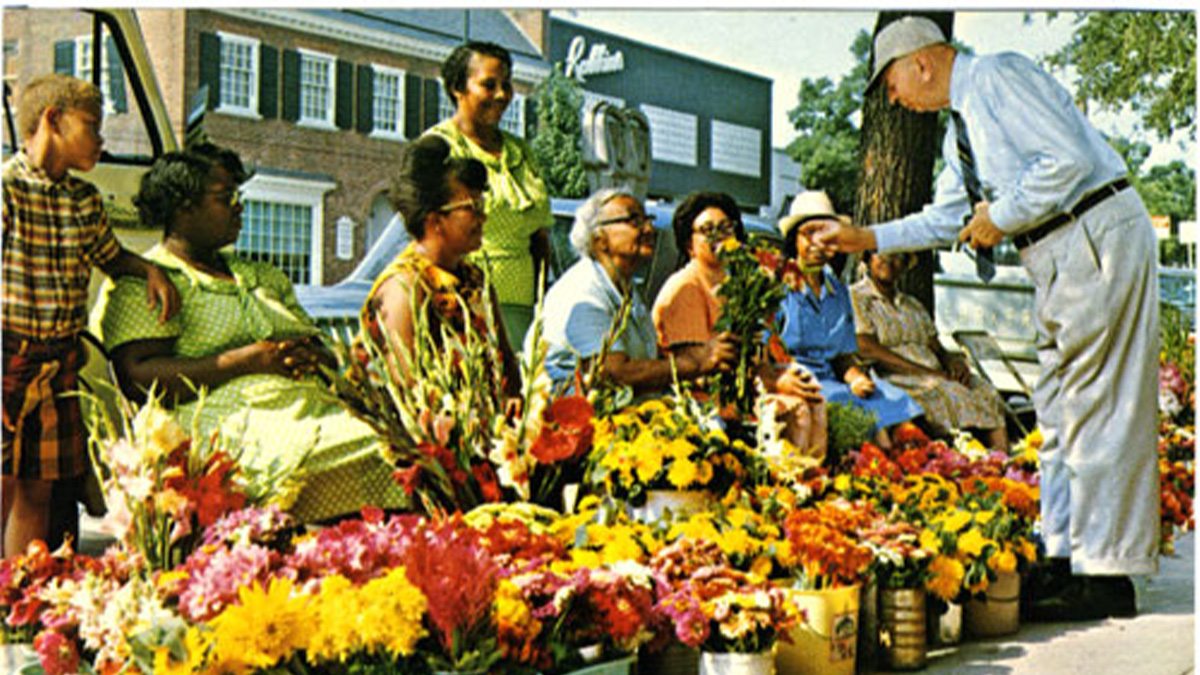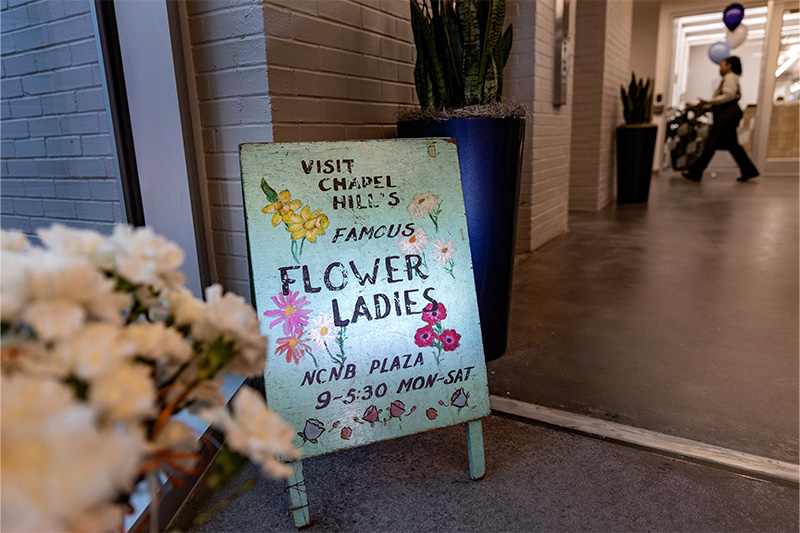Decades later, memories of Flower Ladies live on
Social media is connecting a new generation to the African American florists once central to Franklin Street.

As a girl growing up in Chapel Hill in the early 1950s, Bettye Jenkins went from field to field with her cousins, picking flowers for their grandmother to sell. Lots of daffodils. Some hyacinths. Plenty of daisies.
“She went to town, and it was income for us,” Jenkins says.
Jenkins’ grandmother was Ada Edwards, one of Chapel Hill’s Flower Ladies. The eponymous group of African American women sold flowers on and near Franklin Street from the 1920s to the 1990s.
Their prominence peaked in the 1960s, but memories of them and the colorful flowers they sold to the Chapel Hill and Carolina community remain.
“My grandmother loved going there, sitting down and selling flowers. She very seldom brought any back home,” says Jenkins, 78, operator of a long-running floral business of her own. “The students loved flowers.”
A recent UNC-Chapel Hill social media post proved as much. Asked to choose the right name for the group of African American women who sold flowers on Franklin throughout the 20th century, many alumni correctly picked the Flower Ladies and shared personal memories from their time at Carolina.
“Even when I was a dead broke college kid, I’d find a way to scrape together a couple bucks to buy their flowers from the coffee cans.”
“My favorite thing to do on Friday afternoons was to get a bouquet of fragrant tuberoses.”

A placard paying homage to the Flower Ladies sits near the inside entrance to the Innovate Carolina Junction on Franklin Street, where the women sold flowers to patrons in the previous incarnation of the NCNB Plaza in the 20th century. (Johnny Andrews/UNC-Chapel Hill)
The Flower Ladies were a presence on Franklin as early as the 1920s, according to “UNC A to Z.” They sold their wares there until the late 1960s, when a new town ordinance meant to prohibit other street vendors also knocked them off Franklin. But the Flower Ladies set up shop in a nearby alley that later became the lobby of NCNB Plaza, where they sold into the 1990s. The space now leads into the Innovate Carolina Junction.
The memories and continued fanfare for the Flower Ladies expressed on social media don’t surprise John Blythe, assistant curator for the North Carolina Collection at Wilson Library.
“I have memories of seeing them on Franklin. It was very colorful, as the postcards would suggest,” says Blythe ’86 (’09 MS), a Chapel Hill native. “You walk by and there’s all this color on a gray sidewalk. They were friendly, and they’d just be sitting there. My mother occasionally bought flowers from them.”
One of the lasting depictions of the Flower Ladies shows former Chancellor Robert B. House making a purchase. That scene, captured in the North Carolina Collection’s Durwood Barbour Collection of North Carolina Postcards, perhaps best conveys their prominence and centrality to the University and Chapel Hill.
“If you wanted a really fancy arrangement, you bought it from the florists, but otherwise you bought cut flowers from the Flower Ladies,” Blythe says.
A blog post Blythe wrote on the Flower Ladies years ago garnered many trips down memory lane — even from descendants of those depicted in that colorful postcard.
“What a wonderful memory,” wrote House’s grandson.
The granddaughter of Flower Lady Salina McCauley Farrington wrote, “Seeing this brought back childhood memories of helping her pick the flowers to sell.”
For them and Jenkins, those memories live on.
“As long as I remember, she sold flowers,” Jenkins says of her grandmother. Raised by a Flower Lady, it’s no surprise Jenkins long ago bloomed into one. “Flower-making is in me.”







